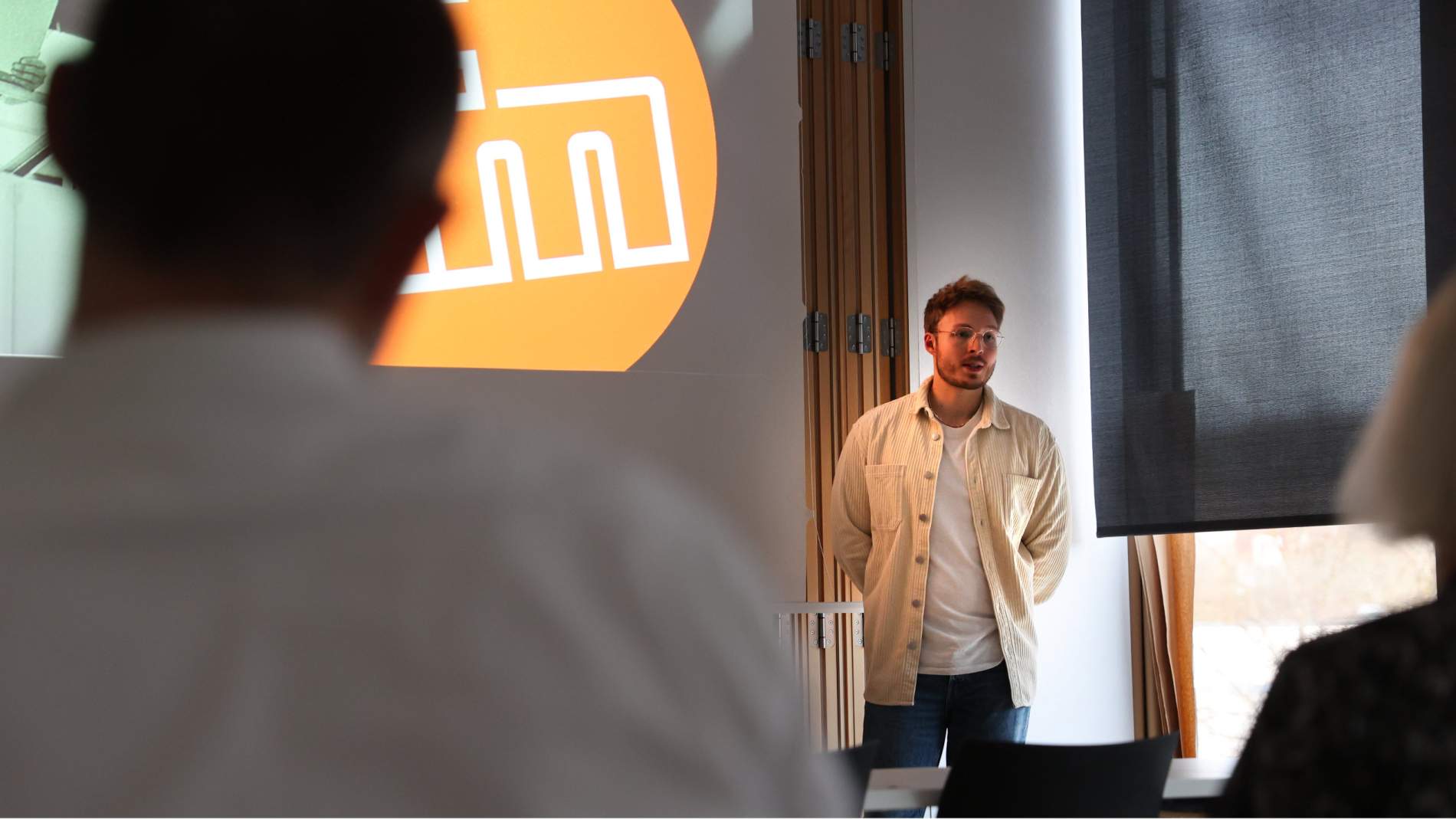
The Laboratory for Digital Transformation and Entrepreneurship at RWU, or LAB4DTE for short, brings together researchers and students, companies and founders. This is also where the "Digitalization Café" takes place at regular intervals. At the start of the summer semester, this lecture and networking format focused on the increasing relevance of 3D sensor technology and the associated camera technologies. Professor Dr. Wolfram Höpken, Head of the Institute for Digital Change at RWU, welcomed guests to the Digitalization Café.
Professor Dr. Jörg Eberhardt kicked things off at the lectern with an introduction to the basics of 3D sensor and camera technology. His focus was on the wide range of possible applications, from smartphone face recognition to use in the industrial sector. Very different technologies are used here. Therefore, according to Eberhardt, "we first need to know the application in order to decide which 3D sensor technology should be used." One example of the diverse camera technologies for 3D detection is the structured light camera, which can recognize the three-dimensional shape of objects and is often used in cars.
To what extent can chat-based AI systems provide information about 3D sensor technology?
Jörg Eberhardt handed over the microphone to a doctoral student from his Institute of Photonic Systems: Matthias Jäger presented his research project in which the fit of shoes can be checked with the help of simple smartphone photos and the 3D visualization linked to them.
Florian Forster from ifm electronic GmbH in Tettnang then presented a self-experiment: he had tested the extent to which chat-based AI systems are currently able to provide information via 3D sensors and camera technologies. He was not only interested in describing the technical possibilities, but also specifically in the calculations and formulas used in 3D sensor technology processes. His conclusion: "AI systems can be helpful, both in the creation and application of formulas. But errors can certainly occur."
Following the presentations, the participants were able to visit RWU's innovation lab, LAB4DTE, where they were able to take a closer look at a 3D body scanner, among other things.